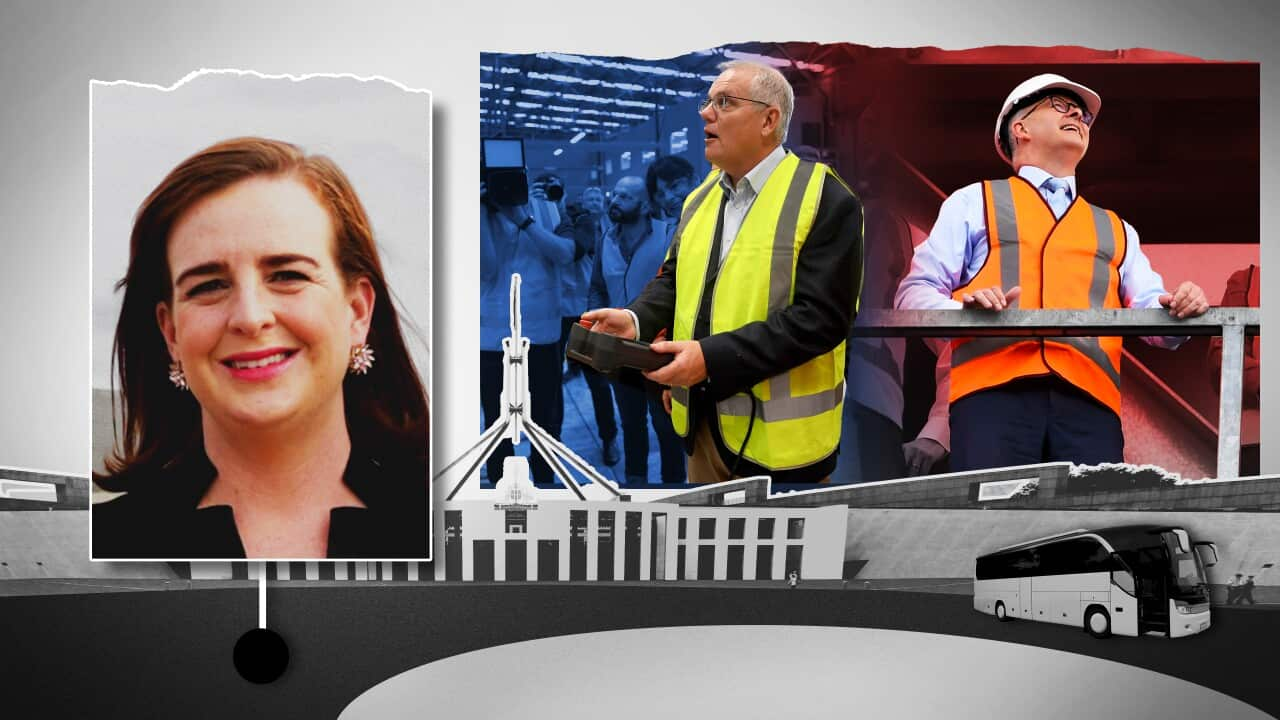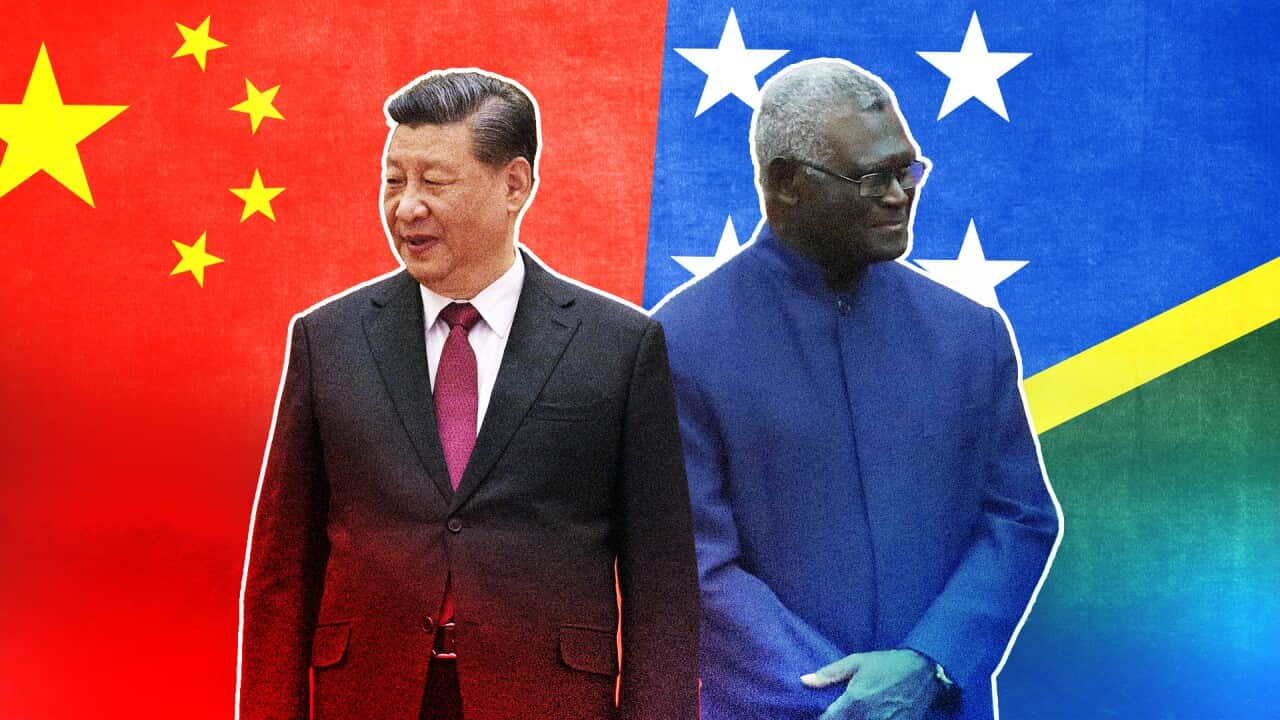This election season has more fluoro work gear than you can poke a stick at, but underneath the orange vests many voters are still unsure about what to make of the candidates.
The Opposition leader’s Covid-19 diagnosis has thrown Labor’s campaign plans into disarray. It means Anthony Albanese will now shift to a virtual footing for seven days, hoping his frontbenchers shine in the field.
The prime minister can keep freewheeling through marginal seats, and the Coalition sees that as a significant advantage.
The wisdom of a six-week campaign was originally framed as playing to Scott Morrison’s political experience.
But there is a risk to the long game, because it means a tired and busy public could tune out.
After the intense social upheaval of the pandemic, with government front and centre, public disengagement has always been a potential peril.

Opposition leader Anthony Albanese (left) shakes hands with Prime Minister Scott Morrison at the leaders' debate in Brisbane on Wednesday. Credit: TOBY ZERNA/AAPIMAGE
The latest opinion polls have tested the public mood and suggest that around 20 per cent of voters remain unconvinced.
Perhaps nowhere was the apathy more stark than in the carpeted Brisbane room where 100 undecided voters gathered this week to participate in a “People’s Forum” put on by Sky News and The Courier Mail, the only debate for the campaign so far.
One in four voters left the room after an hour of hearing from the leaders on a broad range of issues from housing to integrity to disability services to aged care to foreign affairs and remained dubious.
It’s a very small sample size but Anthony Albanese won that contest with 40 per cent, the Prime Minister not far behind on 35 per cent.
Behind the scenes, some strategists on both sides take heart in the news 25 per cent were still on the fence, because it signals a sizeable chunk of the population may be yet to make a call, and is there for the taking.
Enter national security.
While the parties were duelling over border protection, and the government was reheating its people smuggling campaign points, Beijing made a play in the Pacific.
The signing of the security pact between China and Solomon Islands dominated the second week and dented the government’s assertion it is better placed to conduct diplomacy and manage instability in the region.
Both parties have taken a strong line. Labor says it’s the government's worst foreign policy blunder in the Pacific since World War Two. The government maintains Labor’s approach effectively means it's siding with Beijing over Canberra.
As these arguments play out, with the Prime Minister hitting key seats in person and the Opposition Leader running his campaign from his living room, the potential for more crossbenchers and independents to gain a foothold is being closely monitored.
The attention is shifting to the possibility of a hung parliament, and the Rubik’s cube of deals that may need to be struck for either party to find a path to The Lodge.











